Greetings, Brownies and Brown Fellows! Looking for a book to read but don’t know where to start? Look no further! We’ve asked your Faculty Fellows to recommend a book and this is what they’ve suggested.
From economics to romance, philosophy to sports, new beginnings to ghost stories, there’s something for everyone. This list of books includes a variety of topics like racial conflict, nature, education, and summer camps. There’s even a recommendation for a book about punctuation. (It was recommended by an English professor of course!)
Our hope is that this list not only proposes amazing books to read but also gives you a chance to get to know our wonderful Brown Fellows. Let us know if you have any questions.
See you in the fall, and we wish you all a spectacular summer.
Your Faculty Liaisons,
Jackie Tran and Scott Lebow
1. Teacher Man (Frank McCourt)
recommended by Stephen P. Plaskon Ph.D.
Director of Studies Brown Residential College
Associate Professor Curry School of Education
It has been said “Teacher Man” is one of the best books ever written about teaching and schooling in America. Frank McCourt was born in 1930 in Brooklyn, NY but grew up in Limerick, Ireland. He returned to the USA in 1949 and for thirty years taught in New York City high schools. His first book, “Angela’s Ashes” won the Pulitzer Prize as well as numerous other awards. “Teacher Man” is not just the story of one person’s experiences as a teacher in some of the toughest schools in America. It is also a tribute to teachers at all levels no matter where and for how long they have been teaching.
I thoroughly enjoyed reading this book and each time I see it on my shelf I am reminded just what a wonderful and informative read it was. Mr. McCourt is both irreverently witty and heart breakingly honest in his storytelling. “Teacher Man” is a very well written book that truly describes what it means to work with adolescents for five periods a day, five days a week, for nine months a year. It is indeed “The Story” of teaching in America and one of the best autobiographical pieces I have ever read. Anyone with an interest in teaching or in schooling will find this book entertaining, insightful, and simply brilliant. What impressed me as well is that Mr. McCourt is able in his telling the story of his years as a high school English teacher to also share with the reader just how that thirty year experience shaped and laid the foundation for his success as a writer. It is an very interesting combination of elements that is informative, entertaining, and thought provoking. I do highly recommend it to all! SPP
2. Sentimental Education (Gustave Flaubert)
(French: L’Éducation sentimentale, 1869)
recommended by Ahmed H. al-Rahim
Assistant Professor of Islamic Studies, Department of Religious Studies
Director of the Program in Medieval Studies
“Sentimental Education” is considered to be one of the most influential novels of the 19th century. It describes the life of a young man (Frederic Moreau) living through the revolution of 1848 and the founding of the Second French Empire, and his idealized love for an older married woman. The characters of “Sentimental Education” are often marked by capriciousness and self-interest. Frederic is originally infatuated with Madame Arnoux (the older woman), but throughout the novel he falls in and out of love with her. Furthermore, he is unable to decide on a profession and instead ends up living on his uncle’s inheritance.
As a specialist of medieval biography, what makes the reading of this novel so rewarding is the author’s detailed description of the interiorized, emotional world of the young man. This acute awareness of the psychological life of the protagonist as distinct from the portrayed “real” world is what constitutes the novel’s modern turn.
3. The Trolley Problem, or Would You Throw the Fat Guy Off the Bridge?: A Philosophical Conundrum (Thomas Cathcart)
recommended by John Arras
Philosophy, Bioethics
Porterfield Professor of Biomedical Ethics
Director of the Bioethics Minor Program
From an Amazon review: The `Trolley Problem’ was developed by philosopher Philippa Foot in 1967 to illustrate in abstract form the ethical dilemmas involved when making life or death decisions for other people. With some modification from its original form, it can be summarized as a situation where you see a trolley car rolling down the tracks on which a number of people are working and who are oblivious to the approaching car. You have the option of doing nothing in which case the people will surely be run over by the trolley, or throwing a switch that will direct the trolley to an adjacent track on which there are fewer people. What to do? There are several variations on this problem, the most interesting being a scenario in which you can push a fat guy in front of the trolley car which will stop the car, saving the lives of the people on the track but surely killing the fat guy.
This is a very lively and accessible little book, perfect for summer philosophy reading. It poses in highly dramatic fashion a key question in ethics: Is it ethically permissible to rig the world in such a way that a fewer number will die so that a larger number can live? If so, why wouldn’t it be ethical to kill the few to save the many?
4. The Peregrine (J.A. Baker)
recommended by Kevin Hart, FAHA, PhD honoris causa, Inst. Cath. de Paris
Edwin B. Kyle Professor of Christian Studies
Professor of Religious Studies; Courtesy Professor of English and French
Eric D’Arcy Professor of Philosophy, Australian Catholic University
“From fall to spring, J.A. Baker set out to track the daily comings and goings of a pair of peregrine falcons across the flat fen lands of eastern England. He followed the birds obsessively, observing them in the air and on the ground, in pursuit of their prey, making a kill, eating, and at rest, activities he describes with an extraordinary fusion of precision and poetry. And as he continued his mysterious private quest, his sense of human self slowly dissolved, to be replaced with the alien and implacable consciousness of a hawk.”
This is one of the most piercing and beautifully written books about nature that I have read. Baker wrote just two books (the other one is The Hill of Summer), and left next to no knowledge of himself. The Peregrine is a sharply focused, and intensely moving, story of a relationship he has with the falcons of his area and which he believed to be on the verge of extinction. (Luckily, he was wrong.) I recommend it very highly for summer reading!
5. A Manufactured Wilderness: Summer Camps and the Shaping of American Youth, 1890-1960 (Abigail Van Slyck)
recommended by Camille Behnke
Architecture/Architectural History
Sara Shallenberger Brown Fellow
“An engrossing look at American summer camps—from mess halls to tents to fire circles. Abigail A. Van Slyck trains an informed eye on the most visible and evocative aspect of summer camp life: its landscape and architecture. Far from a simple encounter with nature, Van Slyck argues that camps provided a man-made version of wilderness, shaped by middle-class anxieties about gender roles, class tensions, race relations, and modernity and its impact on children.”
Campfires. Swimming holes. Sunscreen. Mosquitoes. Summertime. Have you spent a summer at camp? This book is an intriguing, well-written, wonderfully researched, short story of the history of American summer camps. The book explores how the ephemeral site of summer camp has shaped our youth and impacted our lives well beyond the season.
6. The World Doesn’t End and Hotel Insomnia (Charles Simic); Erosion and Hybrids of Plants and of Ghosts (Jorie Graham); Life and Fate (Vassily Grossman); Ficciones (Jorge Luis Borges); the work of M. R. James
recommended by Charles Mathewes
Carolyn M. Barbour Professor of Religious Studies
Summer reading should be beach-able, which is why Simic and Graham; or long enough to last months, which is why Grossman. All of them are gripping and profound. Grossman does for World War Two what Tolstoy did for the Napoleonic wars, and is better read in sunny weather; so if you’re headed to parts Antipodean this June through August, don’t take that.
For nighttime reading I can recommend Jorge Luis Borges, maybe start with his Ficciones, and also M R James, the Cambridge don of a century ago who wrote ghost stories. MR James’s ghost stories are largely available for free on many e-readers, and so reading one a night before bedtime is just the thing to keep you from going to sleep…
7. The Ice Queen (Alice Hoffman)
recommended by Sue Plaskon
Real Estate Broker/ Director of Training
Better Homes and Gardens Real Estate III
A woman who leads a quiet life, keeping other people at a cool distance, one day utters an idle wish to be struck by lightning — and her wish is granted. Instead of killing her, this cataclysmic event marks a strange and powerful new beginning.
I have recently discovered Alice Hoffman and am eager to read whatever she has written. The Ice Queen got me hooked. Well written and very intriguing. Check her out. Go to http://www.alicehoffman.com for more titles.
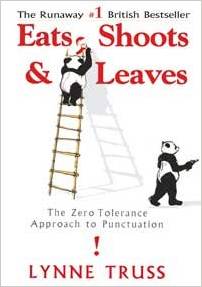
8. Eats, Shoots & Leaves (Lynne Truss)
recommended by Chip Tucker
Professor of English
This is a wonderfully funny and resourceful book about a topic you probably thought only an English professor could care about. It will probably improve your punctuation. It will certainly heighten both the pains you take with it, and the pleasures. (Comma optional in that last sentence.) The title comes from an illustrative joke about a felonious panda.
9. Progress and Poverty (Henry George); Small is Beautiful (E.F. Schumacher)
recommended by Rich Collins
Lawrence Lewis, Jr. Professor Emeritus of Architecture and Planning
Director and Founder of the Institute for Environmental Negotiation
I would like to recommend two books: one, Progress and Poverty, by Henry George, is the most widely published book in economics, ever, but is still caricatured or avoided by Econ 101 instructors. It is a wonderfully literate 19th century book that has changed lives. It is available inexpensively from the Lincoln Institute in Cambridge, Mass.
A second book, if Progress and Poverty is considered too “dense,” is Schumacher’s Small is Beautiful, a 1970’s book that is available in paperback and is a friendly, provocative, critique of neo-classical economics.
Progress and Poverty: “This classic work is an enquiry into the cause of industrial depressions and the persistence of poverty amid advancing wealth. Published in 1879, it was admired and advocated by great minds such as Albert Einstein, Winston Churchill, Leo Tolstoy and Sun Yat-sen in China… This classic offers an alternative ethical and practical guide at a time when the collapse of the Marxist/Socialist experiment and the deep recession in the West leave many seeking fresh inspiration.” (Amazon)
Small Is Beautiful: “Oxford-trained economist E. F. Schumacher’s classic call for the end of excessive consumption. Schumacher inspired such movements as “Buy Locally” and “Fair Trade,” while voicing strong opposition to “casino capitalism” and wasteful corporate behemoths. Named one of the Times Literary Supplement’s 100 Most Influential Books Since World War II, Small Is Beautiful presents eminently logical arguments for building our economies around the needs of communities, not corporations.” (Amazon)
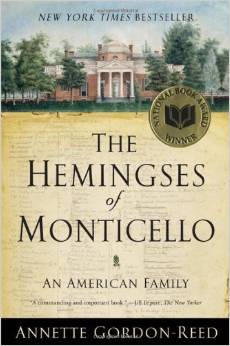
10. The Hemingses of Monticello (Annette Gordon-Reed)
recommended by Cathy Clary
Community Fellow/Garden Designer/Writer/Teacher
I’m re-reading Annette Gordon-Reed’s The Hemingses of Monticello, which is just as good as I remember it. Thoroughly researched and grounded in the records of the time, it comes closer to re-creating the reality of enslaved Africans and women of all classes during those times and shows the pretensions and assumptions of earlier mainstream histories told from the traditional white male perspective. Anyone who lives in the shadow of Jefferson should read it.
Very well-written and engaging. She shows the world seen through many different eyes, with an empathy that extends to all, even the patriarch of the Little Mountain.
11. 36 Arguments for the Existence of God (Rebecca Newberger Goldstein)
recommended by Carl Trindle
Emeritus Professor of Chemistry
I did think back on some readings that have meant a lot to me -some have become more important to me over the years while others’ appeal fades. My choice is a recent work of fiction by Rebecca Newberger Goldstein, “36 Arguments for the Existence of God.” Don’t be put off by the title! The NYTimes said it is “…dazzling, and sparked by frequent flashes of nonchalant brilliance.”
A very good reason to look into this book is that RNG will be Brown’s guest next March, reading from her new book “Plato at the Googleplex.” We hope to welcome her with some appreciative readers.
36 Arguments for the Existence of God: “At the center is Cass Seltzer, a professor of psychology whose book, The Varieties of Religious Illusion, has become a surprise best seller. Dubbed “the atheist with a soul,” he wins over the stunning Lucinda Mandelbaum—“the goddess of game theory.” But he is haunted by reminders of two people who ignited his passion to understand religion: his teacher Jonas Elijah Klapper, a renowned literary scholar with a suspicious obsession with messianism, and an angelic six-year-old mathematical genius, heir to the leadership of an exotic Hasidic sect.”(Amazon)
12. Bury My heart at Wounded Knee (Dee Brown)
recommended by John D. Bonvillian
Associate Professor of Psychology and Linguistics
This volume chronicles the interactions, often violent, between Native Americans and European Americans during the 19th-century. It is presented primarily from the perspective of Native Americans.
This book greatly changed my understanding of the expansion of the United States during the 19th century and of all the harm that was perpetrated.
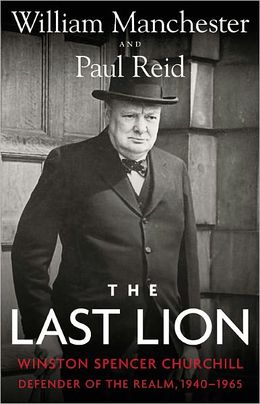
13. The Last Lion: Winston Spencer Churchill (William Manchester)
recommended by James Demas
Professor of Chemistry
Churchill was bigger than life in all regards. Super human comes to mind. A painter, a prodigious historian and writer, and arguably the greatest war time leader of the 20th century. Not always right but never unsure. Manchester does a superb job of painting a picture of a man who lived through and influenced several eras. The fat, hard drinking, ascerbic Churchill of later years that we picture is only partially right. He was fiercely ambitious, but very independent and a poor student in school in early years. As a youth he was trim, athletic, brave and fought in several wars. He may well have participated in the last functional cavalry charge. During the second Boer War he was a war correspondent and was captured, imprisoned, and made a spectacular escape going 300 miles through enemy territory. For his activity he could easily have been executed as a non-military combatant.
The first two volumes are mesmerizing. Then Manchester had the audacity to die before writing the pivotal 3rd volume leaving us hanging. Fortunately Paul Reid has now published the third and final volume based on Manchester’s copious notes. I have read enough of it to see that is true to Manchester’s vision and style.

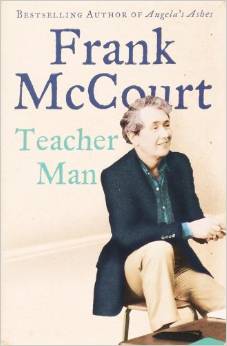
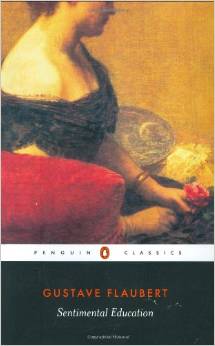
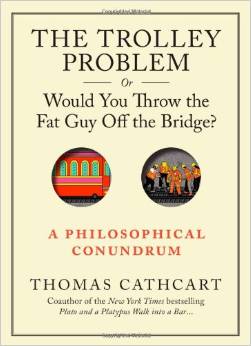
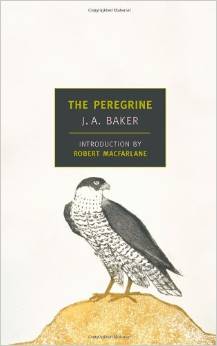
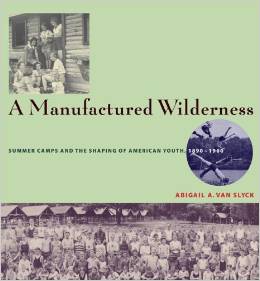
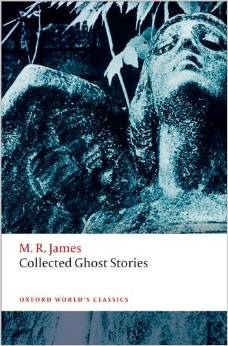
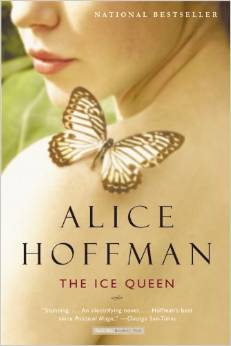
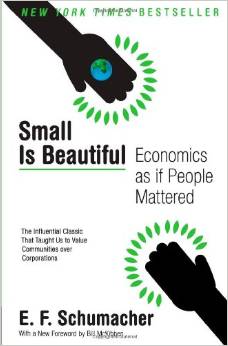
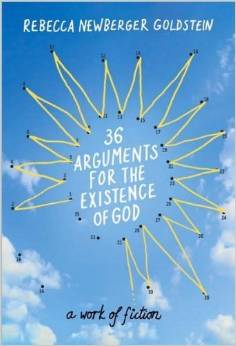
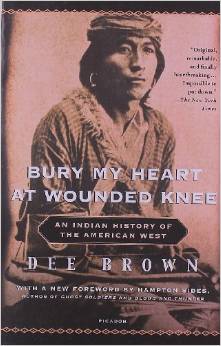
Pingback: Winter Must-Reads | The Brown Yorker·